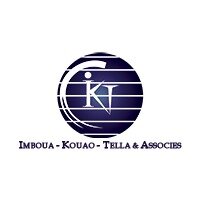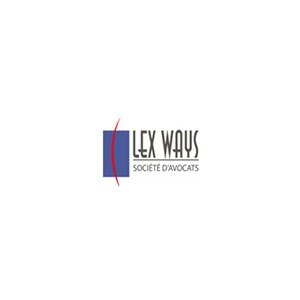Best Brokerage Lawyers in Ivory Coast
Share your needs with us, get contacted by law firms.
Free. Takes 2 min.
Free Guide to Hiring a Real Estate Lawyer
Or refine your search by selecting a city:
List of the best lawyers in Ivory Coast
About Brokerage Law in Ivory Coast:
Brokerage in Ivory Coast refers to the act of representing buyers or sellers of real estate properties. This process involves facilitating the buying, selling, or renting of properties and ensuring that contractual agreements are legally binding.
Why You May Need a Lawyer:
You may need a lawyer specializing in Brokerage in Ivory Coast if you are facing disputes with a real estate agent, need assistance in drafting or reviewing contracts, or if you are involved in a legal dispute related to a real estate transaction.
Local Laws Overview:
In Ivory Coast, real estate transactions are governed by the Civil Code, which outlines rights and obligations of parties involved in Brokerage activities. It is important to be familiar with these laws to ensure that your rights are protected.
Frequently Asked Questions:
1. Do I need a lawyer for Brokerage transactions in Ivory Coast?
It is not mandatory to have a lawyer for Brokerage transactions in Ivory Coast, but having legal assistance can help protect your interests and ensure that contractual agreements are fair.
2. What are the common disputes in Brokerage transactions?
Common disputes in Brokerage transactions include breach of contract, misrepresentation of property, and disputes over commission fees.
3. How can a lawyer help me in a real estate transaction?
A lawyer can help review contracts, negotiate terms, resolve disputes, and ensure that the transaction complies with local laws.
4. How are Brokerage fees regulated in Ivory Coast?
Brokerage fees in Ivory Coast are typically negotiated between the parties involved in the transaction. It is important to have a clear agreement on payment terms.
5. What are the key documents needed for a real estate transaction?
Key documents for a real estate transaction include the sales agreement, property title deeds, and any other legal documents related to the property.
6. Can a lawyer help with property inspections?
A lawyer can assist in coordinating property inspections and ensuring that any issues discovered during inspections are addressed before the transaction is finalized.
7. How long does a typical real estate transaction take in Ivory Coast?
The duration of a real estate transaction in Ivory Coast can vary depending on the complexity of the transaction and whether any disputes arise. On average, it can take several weeks to several months to complete a transaction.
8. What are the legal requirements for selling a property in Ivory Coast?
Legal requirements for selling a property in Ivory Coast include obtaining a property valuation, securing the necessary permits, and ensuring that all taxes and fees are paid.
9. How can I verify the legitimacy of a real estate agent in Ivory Coast?
You can verify the legitimacy of a real estate agent in Ivory Coast by checking their credentials, asking for references, and ensuring that they are registered with the relevant regulatory bodies.
10. What are the penalties for fraud in a real estate transaction?
The penalties for fraud in a real estate transaction in Ivory Coast can vary depending on the severity of the offense. Individuals found guilty of fraud may face fines, imprisonment, or other legal consequences.
Additional Resources:
For more information on Brokerage in Ivory Coast, you can contact the Real Estate Agents Association of Ivory Coast or the Ministry of Housing and Urban Development.
Next Steps:
If you require legal assistance in a Brokerage transaction in Ivory Coast, it is advisable to consult with a qualified lawyer specializing in real estate law. They can help guide you through the legal process and ensure that your interests are protected.
Lawzana helps you find the best lawyers and law firms in Ivory Coast through a curated and pre-screened list of qualified legal professionals. Our platform offers rankings and detailed profiles of attorneys and law firms, allowing you to compare based on practice areas, including Brokerage, experience, and client feedback.
Each profile includes a description of the firm's areas of practice, client reviews, team members and partners, year of establishment, spoken languages, office locations, contact information, social media presence, and any published articles or resources. Most firms on our platform speak English and are experienced in both local and international legal matters.
Get a quote from top-rated law firms in Ivory Coast — quickly, securely, and without unnecessary hassle.
Disclaimer:
The information provided on this page is for general informational purposes only and does not constitute legal advice. While we strive to ensure the accuracy and relevance of the content, legal information may change over time, and interpretations of the law can vary. You should always consult with a qualified legal professional for advice specific to your situation.
We disclaim all liability for actions taken or not taken based on the content of this page. If you believe any information is incorrect or outdated, please contact us, and we will review and update it where appropriate.
Browse brokerage law firms by city in Ivory Coast
Refine your search by selecting a city.











